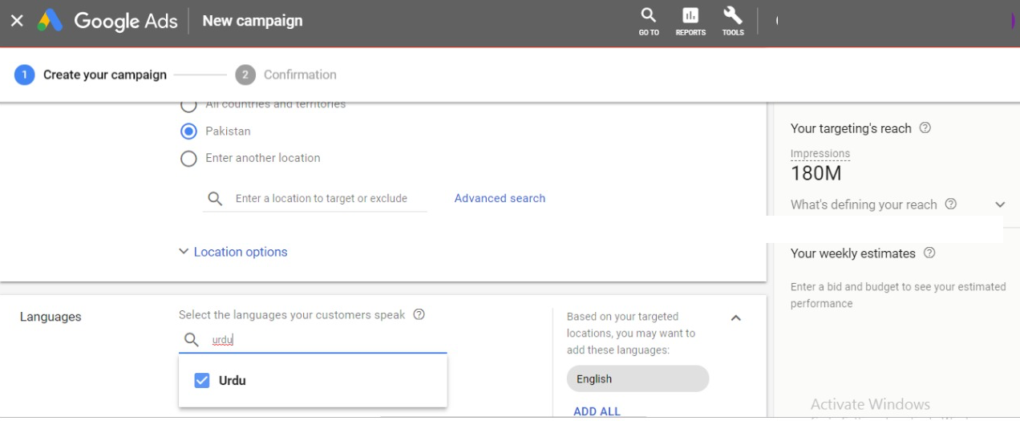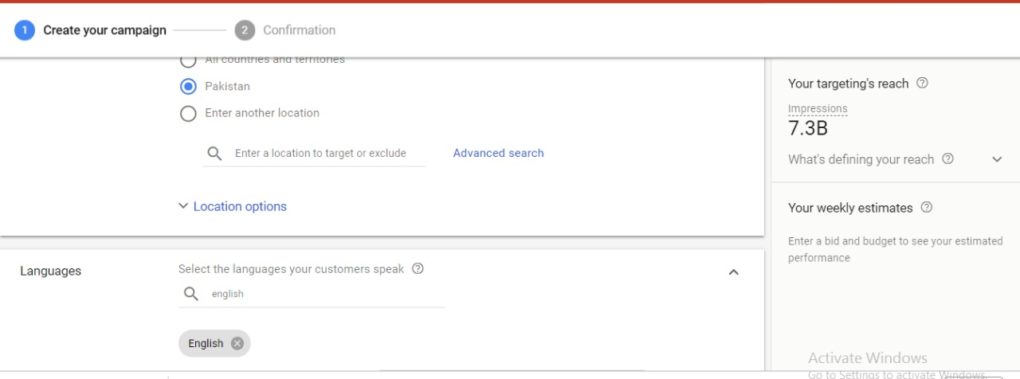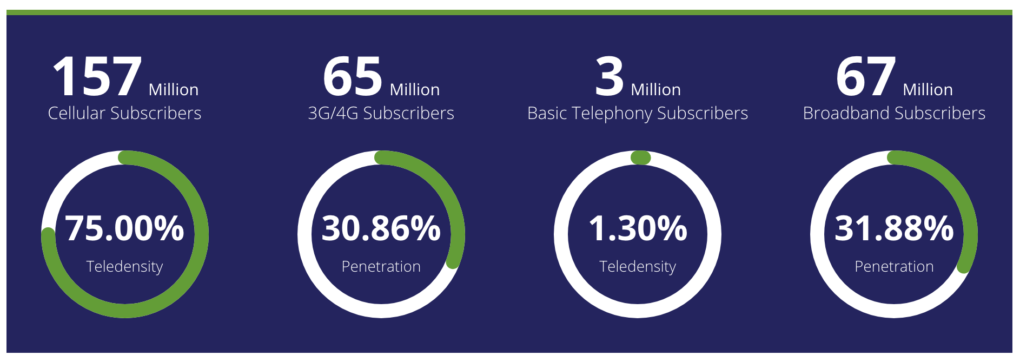TL;DR,
a) Has an Indian reporting line hindered Google ambitions in Pakistan b) In an age and in a company where everything moves at the speed of light, why hasn’t anything happened on the Pakistan front in 5 years. c) Is there really an opportunity worth exploring in Pakistan? d) Can the government take concrete steps to bring about positive change in tech?
One would imagine that a large American multinational conglomerate headquartered in Mountain View, California would have a clear line of sight and visibility into what is happening across its most profitable subsidiary; namely Google.
In the larger interest of economic growth and upholding the tenants of ethical business I wanted to put pen to paper and share some observations of what’s really going on within Google regionally and what its consequences are on the self-professed most valuable market, i.e NBU (Next Billion Users) and most particularly in the Pakistani context.
NBU is newer phenomenon headed by a VP of Product Management. That function and role is based out of Singapore but its back-end engineering for the most part, based on publicly available data and product releases shows that the teams are pre-dominantly India based. To illustrate, Google Launched, Google Station (free internet) starting from India (now part of its NBU initiative) along with Mexico, Thailand, Indonesia, Nigeria and the Philippines very recently.
Yet Pakistan seems to be visibly missing from that equation. Google did do some PR, a small typical veiled and curated announcement on its Datally product in Pakistan towards the end of Nov 2017 a much smaller NBU product. Which frankly no one needs or cares about from an economic impact aspect. There are plenty of free apps that do the same or similar stuff for years. The question this raises is largely one of potential telecom revenue reduction as the author covering the above PR announcement alludes to and challenges Google for a response based on the write up.
But thats an other ongoing issue with Google and Pakistan, most of the PR/Events and Items are highly curated, with measured talking points (mostly hand outs are given by appointed PR Agencies), as if the powers be, in the region do not want locally facing teams to openly engage on the Google platform with Pakistanis.
All Pakistan market announcements seem like an afterthought or muted. Is it because Pakistan is not on the agenda of Google in the region? Be it, due to all engineering for the region being done in India, or for that matter, YouTubes regional Legal support and complaint escalation for Pakistan also being in India, leaving publishers and content produces no leg to stand on as they work to mitigate platform challenges.
There is a lot of cultural sensitivity also missing because of the way for example how an Indian only legal team supports Pakistan origin items or queries. Surely Google can solve for this? If not, Alphabets share holders must ask the question why the directionality and tone around supporting a 200M strong population is centered around strategic bias? NBU wasnt defined by Pakistan or Pakistanis, its a Google classification, yet one of the larger markets seems to get no real love from Google. Not only that, its strong Policy and Legal teams in Singapore drive a very command and control structure, that saying some thing in Pakistan is almost Taboo. Most of the PR items in Pakistan traditionally are over managed that the PR needs PR correction to contain items given the vagueness of most releases. 9 times out of 10 due to the Policy teams, Google is scrambling on the ground to get its “PR messaging right”. A recent interaction with the government and over curation resulted in domestic media speculation around GPay being launched in Pakistan.
The way Google is setup or operates as far as Pakistan is concerned (to date), it has had a purely sales focus and an AD-Sales Pakistan Organization (similar to Facebook). That organization sits in Singapore. Do remember that in this market they have been operating for a decade give or take without on ground employee presence. Citing legal framework for corporate and employee protection, they continue to be operating from the shadows (Contractors or employees flying in and out of Pakistan from Singapore). Kudos to both Microsoft and IBM for being on the ground no less by the same measure and for many many years prior. Also increasingly to Ant Financial and a host of other global companies who are very much on ground and doing business.
The above construct causes direct losses to the exchequer when local companies have to buy USDs or use Credit cards to do FX transactions for Google Ads or FB ads or others where there is no domestic settlement because there isnt a Google entity in Pakistan, that can bill in PKR.
I have explored that thread in a past post along with tax implication for the country. Some thing the government should ask, given the present reserve situation and pose the question to these companies on local presence and incorporation. Not like they didn’t follow suit in other places like Indonesia etc where the governments policy led to Google and FB being on the ground settling tax matters. Where by the way they support aggressive government startup measures also.
Coming back to the issue at hand that the Sales organization reports to Vice President, South East Asia and India. So in affect, for all practical purposes any strategy for Pakistan as it pertains to Google has the buck stopping in India. Lets not venture guesses around motivation and intent and stick to the facts and how small but seemingly calculated moves continue to not let the Pakistani market develop and thrive, is it because the priority isnt being set so? If not, who will course correct this?
In 2015, the only time the VP South East Asia and India came to Pakistan, he made the following statement “This is an ideal time for Google to expand its footprint in Pakistan’s e-commerce and digital space, both directly and indirectly”. Basically nothing has happened since, nor has he returned. If you look at the carefully crafted PR, the use of the word “India” is missing from his official designation and the word “indirectly” is essentially a good lever to not really be present in the market thats been used in the communication. Its 2019 nothing remarkable has really happened in Pakistan Viz a Vi Google. Odd, given that Google is not one to shy away even from Moonshots.
BTW Google only came because of the generosity of one local group TPL, that had the wherewithal to promote the Pakistani market opportunity and engage with the likes of Google to explore growth opportunities devoid of any regional biases that may be present on the other-side of the equation. Plus there are signs that suggest that the said Google VP may likely have political ambitions. What could that possibly mean around prioritizing Pakistan as a market? Or being engaged locally?
What a market it is, made up of over 200m people and 65+M connected users who have been subjectively deprived of advances, both technological and operational as evident by things like Google Station and others not being on the radar. But let’s look at some specifics.
Case 1: Localization Language AD Support . For over 4 years we have been hearing via various Googlers that URDU localization is coming to Pakistan in full swing. Clearly it hasn’t as expected, we have seen lukewarm roll outs and at best “basic” ad-targeting, even the contextual mapping is not where advertisers would like to see it. The reasons being shared is that Google a Multi Billion $ company is un able to or unwilling to hire Urdu localization teams and experts , whilst they claim its being worked on it continues to hurt the largest publishers in the country who publish in Urdu and more so the small ones too. Because when an advertiser tries to do Urdu based campaigns they see a 180M reach as opposed to 7BN for english. It has to do with content also, fully understand that, yet they worked with local publishers, advertisers and industry in India and Indonesia to solve for these items and grow the ecosystem.
This btw has very little to do with Sales but more so with Engineering. Most of these engineering teams are based in India. Token Urdu speaking teams/individuals to provide support have always been present, but the market has yet to see an engineering push in relation to local requirements. Basically as there is no on ground work being done on this there is little to no interest to grow this tier.
Case 2: Google Assistant Urdu language support. Same vein as above but different item altogether. Look at the image above to understand the dis-service to Pakistani users, audiences and likely economic gating by not rolling this out. 65Million 3/4g Subscribers, Let’s assume that 30M have an android device and 50% of those would benefit from voice assistant services. Yet no road map in sight. This selective engineering bias is not limited to language localization. Is it likely gating things like the Bolo literacy app that Google launched in India? Alphabet should be asking if Googles moral and philanthropic responsibility starts and ends with India? This is a phenomenal effort no less on Googles part and we must value the impact it will have. But should this not be more inclusionary? Does it even have the URDU rails or other language rails for the region to offer a similar service? Is that even on the roadmap?
Case 3: No roll out road map and launch market inclusion for Pakistan when Google rolled out AMP and PWA. I know it on good authority, even before the AMP carousel was turned on for PK independent publishers and enthusiasts were delivering AMP content from Pakistan. Way before many mature markets. Yet it was launched in India officially and other markets, but in Pakistan it just started showing up in SERPs. Incidentally, AMP results for URDU were mainstay for publishers in Pakistan but over night URDU AMP pages started falling off the radar, sans BBC Urdu and continue to be a hit or miss for local publishers.
Im sure if one looked further you’d find more examples. I strongly believe that Google as an organization has enabled massive economic opportunities in Pakistan. Having said that, since around 2014 there seems to be an un-said gating process along with little to no prioritization in decisions pertaining to Pakistan. You can gather your own facts and evaluate them. All this information is available in the public domain.
Now let’s focus on the opportunity piece. How does Pakistan really turn this into massive operating opportunity? It’s simple, invite Google to the table, engage with them, publicly ask questions about services and features as they pertain to Pakistan. Don’t shy away from asking the question(s) around India based management and engineering teams leading the charge for decisions in Pakistan and the low priority responses provided on open ticket items. Also don’t leave these conversations or any conversations up to advisors. Just because they take selfies doesn’t mean they are qualified to handle a national debate on tech growth.
From a government perspective, the next frontier for growth, financial inclusion and e-commerce is Payments. With the remarkable up-take GPay(formerly Google Tez) has had in India, it would not be lost on them to launch similar services in Pakistan. I have written about payment enablement at length earlier too.
Given that the SBP Mandates that all electronic transaction data reside in Pakistan, it must work with all international players looking to enter the market to ensure that they build technical provisions to host and pass-through banking data within the geo-graphical remit of Pakistan. Allowing this to go unchecked will create huge national security implications. In the case of ANT financial and others, bringing them in to the regulated sphere by virtue of them having to acquire a stake in a Micro Finance Bank was the right move.
An enhanced policy frame work must be put into place for any international payment or wallet providers even the ones that have applied for EMI licensing to adhere to this. Any such operators, be it the ambitions of the ride hailing companies who want to capitalize on their existing clients to the likes of Google all must be able to segregate the domestic transactions and work with the SBP to ensure they can piecemeal their domestic data, locally and not mirror it in the cloud and that the whole processes should be independently auditable.
This is most pertinent because not doing so will kill the local Fintechs and wallet companies who have adhered to these provisions in the rules from day one. This is nothing new, the EU also launched similar provisions called the GDPR to which all the tech companies had to comply with including Google. That spawned of an entire industry within it self and in Pakistans case it will create a host of new jobs and economic activity.
Secondly a subsidized no-fee or near-0 fee models like the ones Google used in India, must be discouraged. Long term whilst Google can support a race to the bottom on no fees, Pakistani Fintechs will die in a blood bath. We are only starting in this effort, so we must not tilt the scales in the direction of one company or companies the fuel the likes of NBU initiatives on the back of strong advertising revenue backed balance sheets. Pakistani Banks will also be the net-looser in such a scenario.
Multi party partnerships are the way to go and also to keep the likes of ANT in check, players like Google must be invited to the table.
The issue is, Tez or Gpay was made in India for India pre-dominantly by an Indian workforce. So if Google is serious about Pakistan, or product localization, it must rise to the occasion and get past token Pakistanis in its teams and build engineering capacity either domestically or outside of India to remove any bias. The SBP should work with the local tech industry, academia and Google to solve for that issue. But first Google has to show willingness to engage. It does become very difficult when most of its top Product, Engineering and Sales Leadership likely will have visa challenges. Thus we must look at the Pakistan opportunity not from an Indian specific lense but from a Google and Alphabet one.
The government has the opportunity to embark on real engagement with Google past MOUs. Those don’t help any one. It must seek professional help in ensuring ease of business for the likes of Google and full support across the board. It must stop making committees with people with android phones alone as the baseline criteria for understand Googles complex makeup and for once shun the old guard. We must learn to call a spade a spade and also fix our operational issues.
Provide massive tax breaks to the likes of Google to encourage them to bring in talent from Mountain View and across the world to operate in Pakistan. Incentivize them to open shop locally. Work with them to use their best in class payments rails and help leapfrog our own ecosystem. Partnerships will only make things successful long term. But these partnerships have to be mutually beneficial.
It’s time to engage and time for Alphabet to introspect if its leadership which truly is world class, needs to reevaluate its Pakistan playbook by redrawing reporting the lines drawn in sand. I have one simple ask, how many of the 20% personal time projects at Google in India are focused on solving items for Pakistan?


